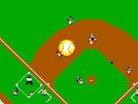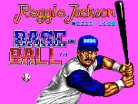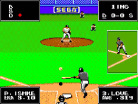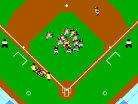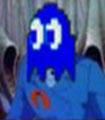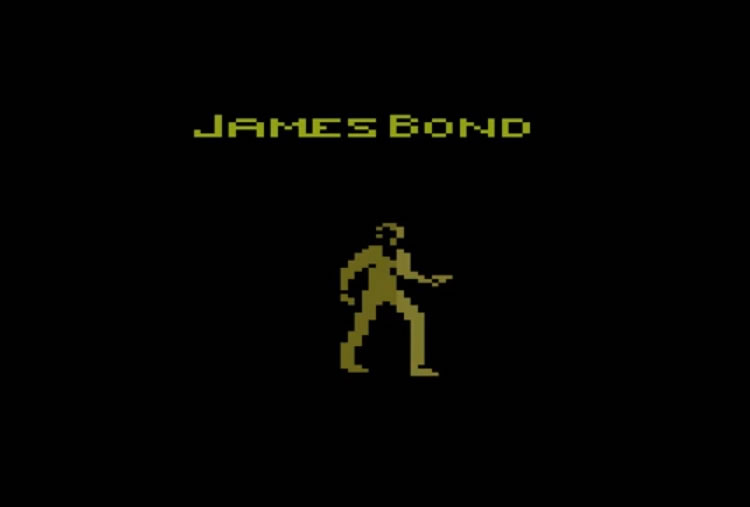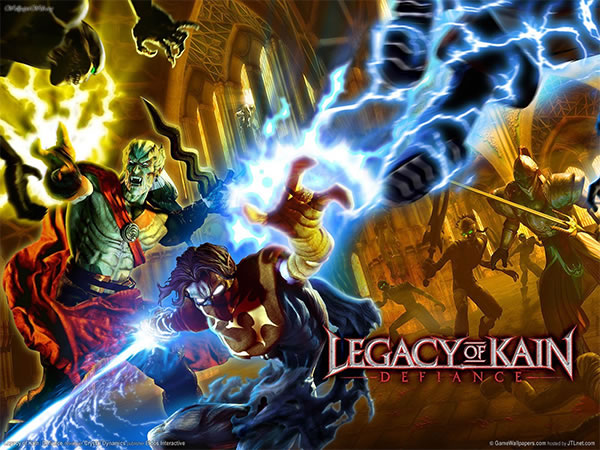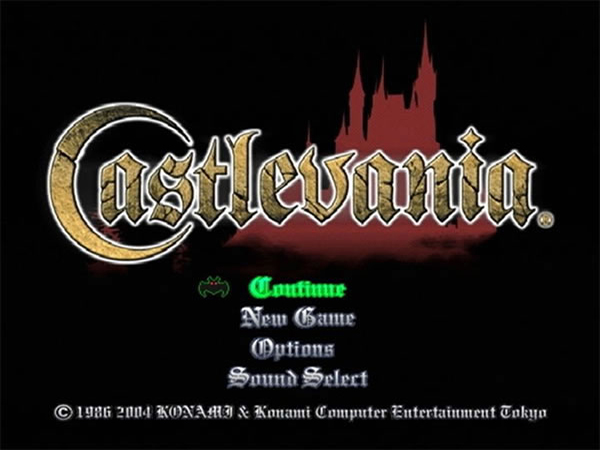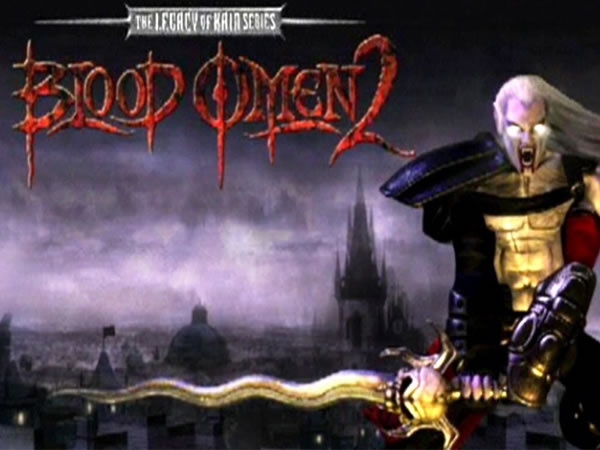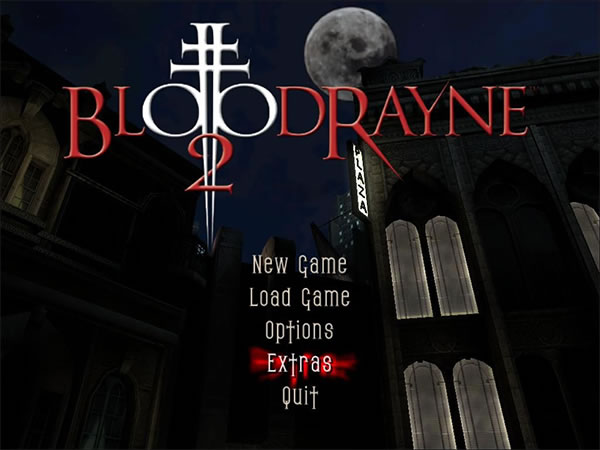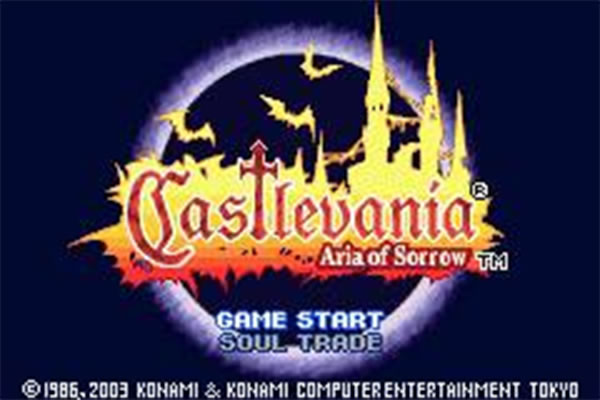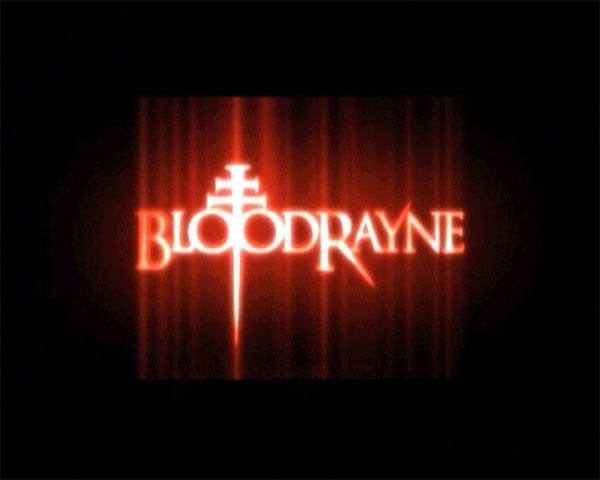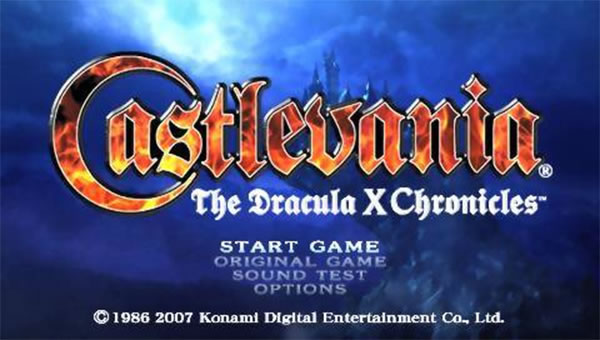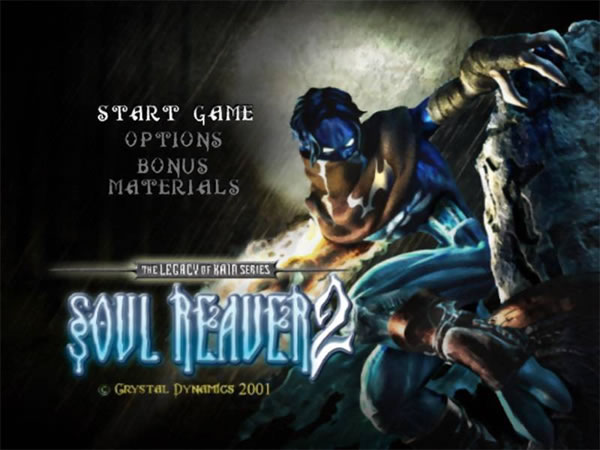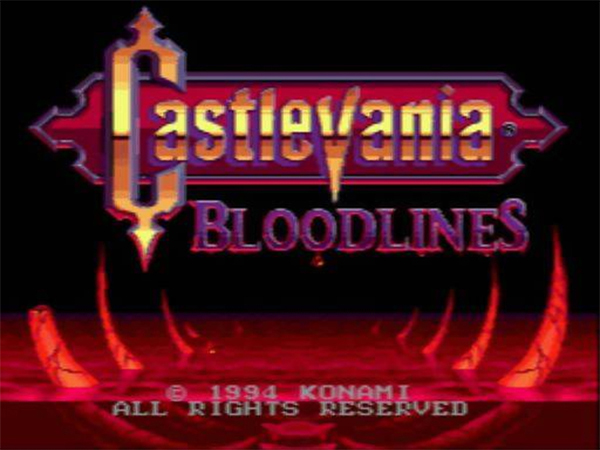- CLASSIC MAGAZINES
- REVIEW CREW
A show recapping what critics thought back
when classic games first came out! - NEXT GENERATION'S BEST & WORST
From the worst 1-star reviews to the best
5-stars can offer, this is Next Generation! - NINTENDO POWER (ARCHIVE)
Experience a variety of shows looking at the
often baffling history of Nintendo Power! - MAGAZINE RETROSPECTIVE
We're looking at the absolutely true history of
some of the most iconic game magazines ever! - SUPER PLAY'S TOP 600
The longest and most ambitious Super NES
countdown on the internet! - THEY SAID WHAT?
Debunking predictions and gossip found
in classic video game magazines! - NEXT GENERATION UNCOVERED
Cyril is back in this spin-off series, featuring the
cover critic review the art of Next Generation! - HARDCORE GAMER MAGAZING (PDF ISSUES)
Download all 36 issues of Hardcore Gamer
Magazine and relive the fun in PDF form!
- REVIEW CREW
- ELECTRONIC GAMING MONTHLY
- ELECTRONIC GAMING MONTHLY RANKS
From Mario to Sonic to Street Fighter, EGM
ranks classic game franchises and consoles! - ELECTRONIC GAMING MONTHLY BEST & WORST
Counting down EGM’s best and worst reviews
going year by year, from 1989 – 2009! - ELECTRONIC GAMING BEST & WORST AWARDS
11-part video series chronicling the ups and
downs of EGM’s Best & Worst Awards!
- ELECTRONIC GAMING MONTHLY RANKS
- GAME HISTORY
- GAME OVER: STORY BREAKDOWNS
Long-running series breaking down game
stories and analyzing their endings! - A BRIEF HISTORY OF GAMING w/ [NAME HERE]
Real history presented in a fun and pithy
format from a variety of game historians! - THE BLACK SHEEP
A series looking back at the black sheep
entries in popular game franchises! - INSTANT EXPERT
Everything you could possibly want to know
about a wide variety of gaming topics! - FREEZE FRAME
When something familiar happens in the games
industry, we're there to take a picture! - I'VE GOT YOUR NUMBER
Learn real video game history through a series
of number-themed episodes, starting at zero! - GREAT MOMENTS IN BAD ACTING
A joyous celebration of some of gaming's
absolute worst voice acting!
- GAME OVER: STORY BREAKDOWNS
- POPULAR SHOWS
- DG NEWS w/ LORNE RISELEY
Newsman Lorne Riseley hosts a regular
series looking at the hottest gaming news! - REVIEW REWIND
Cyril replays a game he reviewed 10+ years
ago to see if he got it right or wrong! - ON-RUNNING FEUDS
Defunct Games' longest-running show, with
editorials, observations and other fun oddities! - DEFUNCT GAMES QUIZ (ARCHIVE)
From online quizzes to game shows, we're
putting your video game knowledge to the test!- QUIZ: ONLINE PASS
Take a weekly quiz to see how well you know
the news and current gaming events! - QUIZ: KNOW THE GAME
One-on-one quiz show where contestants
find out if they actually know classic games! - QUIZ: THE LEADERBOARD
Can you guess the game based on the classic
review? Find out with The Leaderboard!
- QUIZ: ONLINE PASS
- DEFUNCT GAMES VS.
Cyril and the Defunct Games staff isn't afraid
to choose their favorite games and more! - CYRIL READS WORLDS OF POWER
Defunct Games recreates classic game
novelizations through the audio book format!
- DG NEWS w/ LORNE RISELEY
- COMEDY
- GAME EXPECTANCY
How long will your favorite hero live? We crunch
the numbers in this series about dying! - VIDEO GAME ADVICE
Famous game characters answer real personal
advice questions with a humorous slant! - FAKE GAMES: GUERILLA SCRAPBOOK
A long-running series about fake games and
the people who love them (covers included)! - WORST GAME EVER
A contest that attempts to create the worst
video game ever made, complete with covers! - LEVEL 1 STORIES
Literature based on the first stages of some
of your favorite classic video games! - THE COVER CRITIC
One of Defunct Games' earliest shows, Cover
Critic digs up some of the worst box art ever! - COMMERCIAL BREAK
Take a trip through some of the best and
worst video game advertisements of all time! - COMIC BOOK MODS
You've never seen comics like this before.
A curious mix of rewritten video game comics!
- GAME EXPECTANCY
- SERIES ARCHIVE
- NINTENDO SWITCH ONLINE ARCHIVE
A regularly-updated list of every Nintendo
Switch Online release, plus links to review! - PLAYSTATION PLUS CLASSIC ARCHIVE
A comprehensive list of every PlayStation
Plus classic release, including links! - RETRO-BIT PUBLISHING ARCHIVE
A regularly-updated list of every Retro-Bit
game released! - REVIEW MARATHONS w/ ADAM WALLACE
Join critic Adam Wallace as he takes us on a
classic review marathon with different themes!- DEFUNCT GAMES GOLF CLUB
Adam Wallace takes to the links to slice his way
through 72 classic golf game reviews! - 007 IN PIXELS
Adam Wallace takes on the world's greatest spy
as he reviews 15 weeks of James Bond games! - A SALUTE TO VAMPIRES
Adam Wallace is sinking his teeth into a series
covering Castlevania, BloodRayne and more! - CAPCOM'S CURSE
Adam Wallace is celebrating 13 days of Halloween
with a line-up of Capcom's scariest games! - THE FALL OF SUPERMAN
Adam Wallace is a man of steel for playing
some of the absolute worst Superman games! - THE 31 GAMES OF HALLOWEEN
Adam Wallace spends every day of October afraid
as he reviews some of the scariest games ever! - 12 WEEKS OF STAR TREK
Adam Wallace boldly goes where no critic has
gone before in this Star Trek marathon!
- DEFUNCT GAMES GOLF CLUB
- DAYS OF CHRISTMAS (ARCHIVE)
Annual holiday series with themed-episodes
that date all the way back to 2001!- 2015: 30 Ridiculous Retro Rumors
- 2014: 29 Magazines of Christmas
- 2013: 29 Questionable Power-Ups of Christmas
- 2012: 34 Theme Songs of Christmas
- 2011: 32 Game Endings of Christmas
- 2010: 31 Bonus Levels of Christmas
- 2009: 30 Genres of Christmas
- 2008: 29 Controls of Christmas
- 2007: 34 Cliches of Christmas
- 2006: 33 Consoles of Christmas
- 2005: 32 Articles of Christmas
- 2004: 31 Websites of Christmas
- 2003: 29 Issues of Christmas
- 2002: 28 Years of Christmas
- 2001: 33 Days of Christmas
- NINTENDO SWITCH ONLINE ARCHIVE
- REVIEW ARCHIVE
- FULL ARCHIVE
Reggie Jackson's Baseball
In 1976, an immodest Reggie Jackson told the Washington Post, "If I played in New York, they'd name a candy bar after me." He was right. The Reggie Jackson Bar premiered with the new season in 1978 at Yankee Stadium. In 1988, Jackson briefly considered playing in Japan, but never said, "If I played in Tokyo, Sega would name a game after me." They did anyway.
Reggie Jackson Baseball is Sega's second effort to bring the pastime to the Master System and it is a vast improvement to the misnomered Great Baseball released a year earlier?a game marred by sluggish control and awful sound. The fielders in Reggie Jackson Baseball are not necessarily swift, but they at least give the player a fighting chance to make outs. Its controls are self-explanatory and easy to learn. An automatic fielder option helps make this game a quick diversion, letting the player concentrate on hitting and pitching. With this helpful option, routine plays don't become inside the park homeruns. Let's face it, no one person should be responsible for an entire team's hitting, pitching, and fielding (though Bugs Bunny once did it in the Looney Toons episode entitled "Baseball Bugs").
Rather than opting for a pitcher's view (popularized by television broadcasts), the game prioritizes hitting by showing the field from behind home plate. Your swing is segmented into several stages, and if you hold down the "B" button, you'll take a full hack. Some pitches, however, come in at speeds excessive of 100 mph, so you may just want to take half-swings, especially with a two-strike count. The changes in speed are wickedly frustrating. One pitcher, for example, can range from 33 to 108 mph. You're not sure whether to stand back or flinch.
While no actual players are used in the game (not even Jackson himself!!), the managers bear resemblance to real skippers, including Jackson's personal favorite, Billy Martin. Most fans will recognize caricatures of Lasorda, LaRussa, and maybe even a bloated looking Jim Fregosi. Martin has a peculiarly worried look that make you wonder if he knows that Dallas Green is waiting in wings ready to take his job.
The game's most glaring problem lies in its colors. You would think the color scheme for a baseball game would be obvious, but fields come in red, yellow, and green. Seeing a red field, you may think you're playing Virtual Boy Baseball. The field color is randomly chosen, so a purist must keep resetting his console until he hits upon the lush verdure he remembers as a boy. A less obvious error in coloring occurs in the title screen: Reggie Jackson's eyes are blue! From Reggie's skin color, you know the game has brown in its color palette, but his eyes are bluer than Sinatra's. Weird.
This baseball simulation does have its share of innovations. Pop-up flies grow in perspective to the point of seeing the stitches rotate on the ball as it approaches the spectator from an aerial view?a nice touch. Cheerleaders spur on the home team to success (despite the fact that no American baseball team has a cheerleading squad.) It also adds an element of violence to the sport: every hit-batter results in an infield brawl while the injured batter is escorted out of the stadium on a stretcher. (The batter's name, however, is not removed from the roster next time through the order.) This garnish seems particularly strange since Jackson, himself, often tried to distance himself from his reputation as a hothead, especially after his ballyhooed encounters with Charlie Finely, Billy North, and Billy Martin.
The game was released outside of the United States as "American Baseball" which is a scary moniker because there might be some kid in Guatemala watching the bench-clearing brawl thinking that all Americans are short-fused lovers of violence with weak constitutions. He might have to play Cal Ripken Jr.'s Baseball just to undo that perception.
Unfortunately, sports games tend to have short lives since they are annually supplanted by superior products. Still, Reggie Jackson Baseball is still better than many 8-bit renditions of this beloved sport, and it may hold the attention of a sentimentalist for at least a couple of innings.
Reggie Jackson Baseball is Sega's second effort to bring the pastime to the Master System and it is a vast improvement to the misnomered Great Baseball released a year earlier?a game marred by sluggish control and awful sound. The fielders in Reggie Jackson Baseball are not necessarily swift, but they at least give the player a fighting chance to make outs. Its controls are self-explanatory and easy to learn. An automatic fielder option helps make this game a quick diversion, letting the player concentrate on hitting and pitching. With this helpful option, routine plays don't become inside the park homeruns. Let's face it, no one person should be responsible for an entire team's hitting, pitching, and fielding (though Bugs Bunny once did it in the Looney Toons episode entitled "Baseball Bugs").
Rather than opting for a pitcher's view (popularized by television broadcasts), the game prioritizes hitting by showing the field from behind home plate. Your swing is segmented into several stages, and if you hold down the "B" button, you'll take a full hack. Some pitches, however, come in at speeds excessive of 100 mph, so you may just want to take half-swings, especially with a two-strike count. The changes in speed are wickedly frustrating. One pitcher, for example, can range from 33 to 108 mph. You're not sure whether to stand back or flinch.
While no actual players are used in the game (not even Jackson himself!!), the managers bear resemblance to real skippers, including Jackson's personal favorite, Billy Martin. Most fans will recognize caricatures of Lasorda, LaRussa, and maybe even a bloated looking Jim Fregosi. Martin has a peculiarly worried look that make you wonder if he knows that Dallas Green is waiting in wings ready to take his job.
The game's most glaring problem lies in its colors. You would think the color scheme for a baseball game would be obvious, but fields come in red, yellow, and green. Seeing a red field, you may think you're playing Virtual Boy Baseball. The field color is randomly chosen, so a purist must keep resetting his console until he hits upon the lush verdure he remembers as a boy. A less obvious error in coloring occurs in the title screen: Reggie Jackson's eyes are blue! From Reggie's skin color, you know the game has brown in its color palette, but his eyes are bluer than Sinatra's. Weird.
This baseball simulation does have its share of innovations. Pop-up flies grow in perspective to the point of seeing the stitches rotate on the ball as it approaches the spectator from an aerial view?a nice touch. Cheerleaders spur on the home team to success (despite the fact that no American baseball team has a cheerleading squad.) It also adds an element of violence to the sport: every hit-batter results in an infield brawl while the injured batter is escorted out of the stadium on a stretcher. (The batter's name, however, is not removed from the roster next time through the order.) This garnish seems particularly strange since Jackson, himself, often tried to distance himself from his reputation as a hothead, especially after his ballyhooed encounters with Charlie Finely, Billy North, and Billy Martin.
The game was released outside of the United States as "American Baseball" which is a scary moniker because there might be some kid in Guatemala watching the bench-clearing brawl thinking that all Americans are short-fused lovers of violence with weak constitutions. He might have to play Cal Ripken Jr.'s Baseball just to undo that perception.
Unfortunately, sports games tend to have short lives since they are annually supplanted by superior products. Still, Reggie Jackson Baseball is still better than many 8-bit renditions of this beloved sport, and it may hold the attention of a sentimentalist for at least a couple of innings.
HOME |
CONTACT |
NOW HIRING |
WHAT IS DEFUNCT GAMES? |
NINTENDO SWITCH ONLINE |
RETRO-BIT PUBLISHING
Retro-Bit |
Switch Planet |
The Halcyon Show |
Same Name, Different Game |
Dragnix |
Press the Buttons
Game Zone Online | Hardcore Gamer | The Dreamcast Junkyard | Video Game Blogger
Dr Strife | Games For Lunch | Mondo Cool Cast | Boxed Pixels | Sega CD Universe | Gaming Trend
Game Zone Online | Hardcore Gamer | The Dreamcast Junkyard | Video Game Blogger
Dr Strife | Games For Lunch | Mondo Cool Cast | Boxed Pixels | Sega CD Universe | Gaming Trend
Copyright © 2001-2025 Defunct Games
All rights reserved. All trademarks are properties of their respective owners.
All rights reserved. All trademarks are properties of their respective owners.






